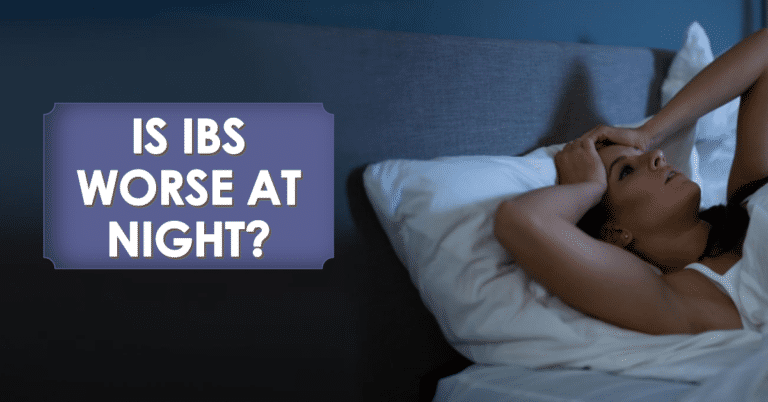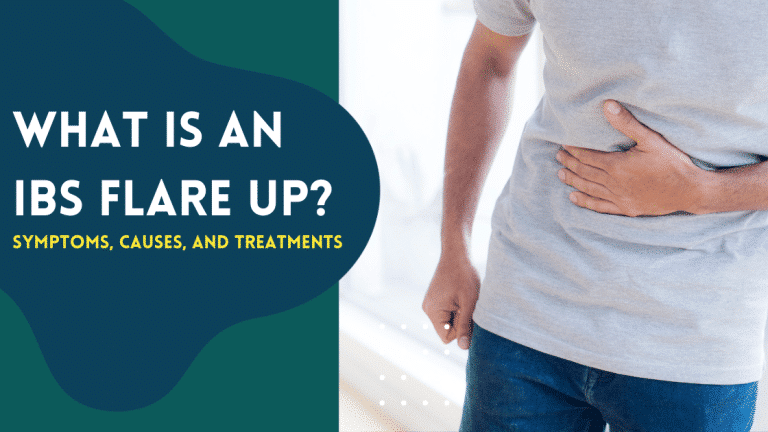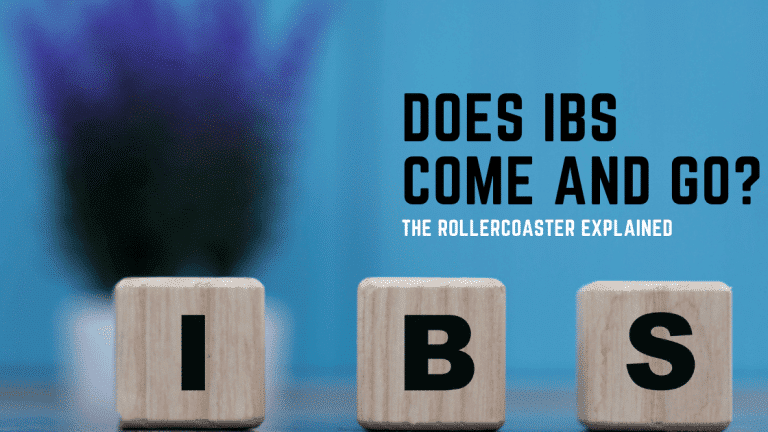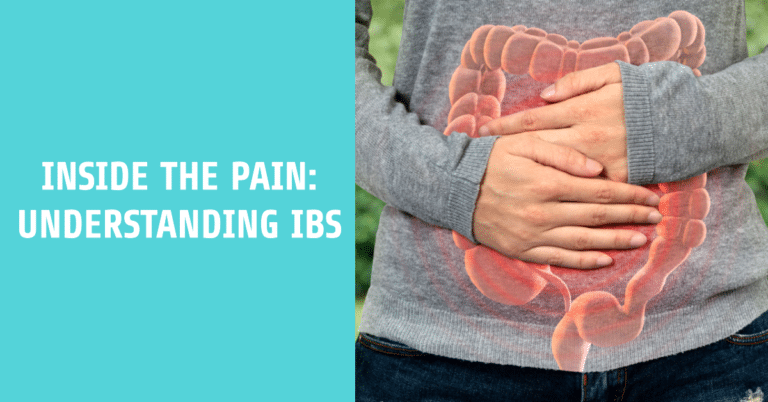Is IBS Related to Anxiety? – Escaping the Endless Loop of Worry & Woe
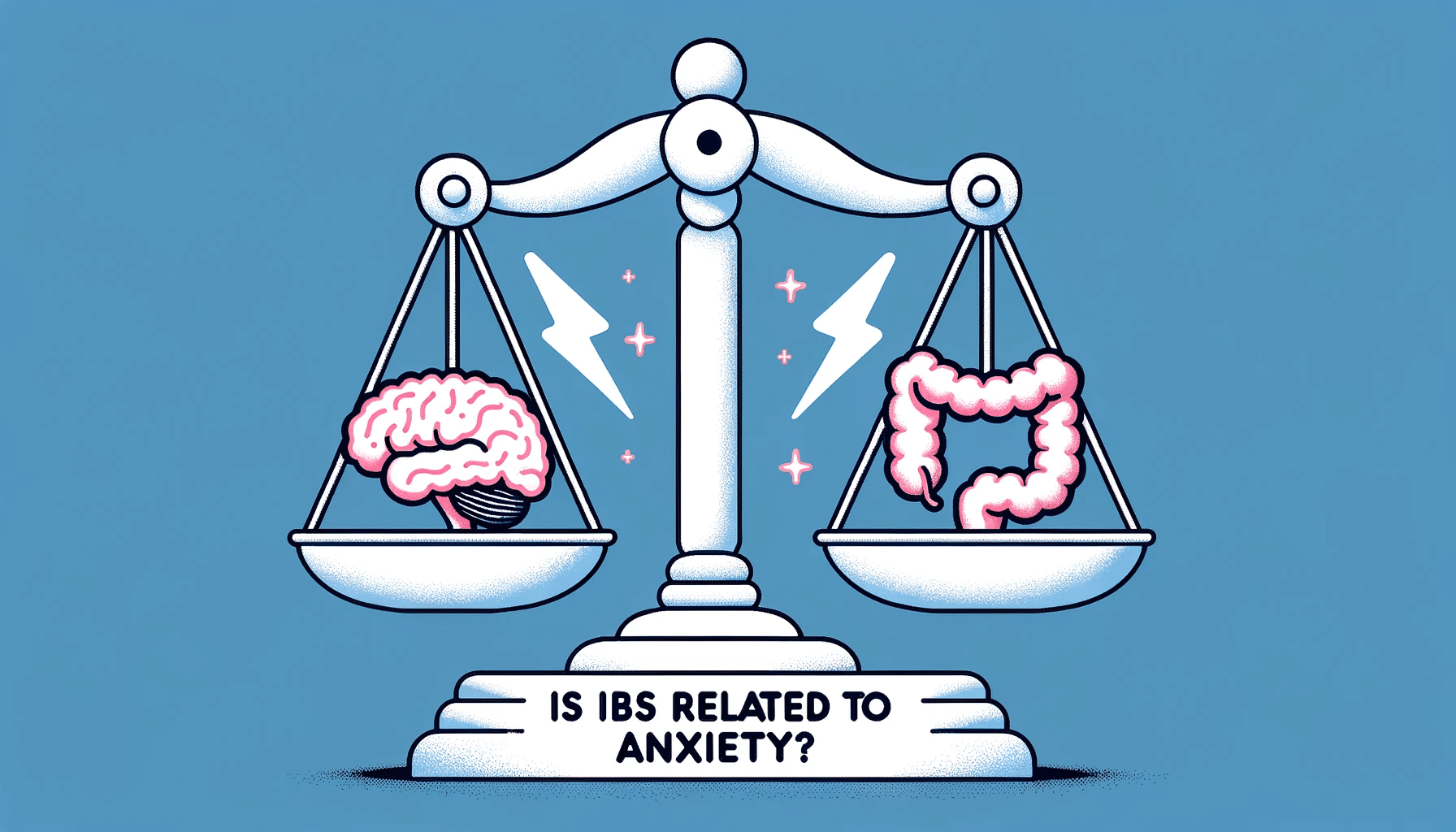
Is IBS related to anxiety?
Absolutely.
If you suffer from frequent diarrhea, constipation, and stomach pains from irritable bowel syndrome (IBS), you likely also struggle with anxiety and depression.
The gut and mind tangle together in distress, each one exacerbating the other’s symptoms. It’s an endless loop of bowel issues and worry.
But take heart – you can unwind their knotted bond. Arm yourself with knowledge of their connection, and relief for both body and mind awaits.
Read on to understand the relationship between IBS and anxiety and how to break the cycle.
Key Takeaways:
- IBS and anxiety feed off each other in an unhealthy loop
- Stress impacts gut motility, permeability, and inflammation
- Lifestyle changes and therapies can calm anxiety and IBS
- Address the mind and the gut together for the best results
- You don’t have to suffer – take control of IBS and anxiety!
The IBS-Anxiety Connection Explained
Why IBS and Anxiety Are so Closely Linked
Irritable Bowel Syndrome (IBS) and anxiety have a very cozy relationship. These troublesome twosome are found together more often than not.
But why?
It mainly comes down to something called the gut-brain axis. This is the communication highway between your brain and your digestive system. Signals constantly travel in both directions along this pathway.
When you’re feeling stressed or anxious, your brain sends alarm signals down to your gut. This can directly affect gut motility and inflammation, leading to common IBS symptoms like abdominal pain, diarrhea, constipation, bloating, and more.
At the same time, if you have an irritated bowel, those signals travel right back up to the brain. The gut inflammation and IBS symptoms activate parts of the brain involved in stress, emotions, and anxiety.
It’s a vicious cycle where each one feeds the other. Anxiety exacerbates IBS, then IBS triggers more anxiety. Like a dog chasing its own tail in an endless loop of distress.
Making matters worse are all the ways anxiety manifests physically in the body. Sweating, shaking, dizziness, nausea, and muscle tension are common anxiety symptoms. Many of those same symptoms also occur with IBS flare-ups.
So you feel anxious, then your gut acts up. This makes you more anxious as physical symptoms mount.
Your racing mind starts to worry that something is seriously wrong with you. This grows the anxiety even more, further worsening IBS. On and on it goes.
How the Gut-Brain Axis Creates a Vicious Cycle
The gut-brain connection is a two-way street. Signals constantly travel between your digestive system and your brain.
When you’re anxious, your brain can…
- Increase gut contractions → cramps, diarrhea
- Slow gut motility → constipation
- Affect gut inflammation → pain, bloating
At the same time, when your gut is inflamed, it can…
- Activate brain regions for stress and emotion → anxiety
- Trigger the release of stress hormones → panic response
- Exacerbate anxiety symptoms like nausea → more worry
This creates a feedback loop where anxiety worsens IBS, and IBS drives more anxiety. The result is a destructive cycle where each condition fuels the other.
Lifestyle Fixes to Ease Anxiety and IBS
Calming the Mind and Body Through Managing Stress
Unmanaged stress can wreak havoc on both your mental and gut health.
When you’re chronically stressed, your body is flooded with cortisol and other hormones that disrupt normal functioning. This has many negative effects:
- Increasing inflammation throughout the body, including in the digestive tract
- Altering gut motility, absorption, and permeability
- Activating brain regions involved in fear, worry, and panic responses
- Causing physical symptoms like muscle tension, nausea, dizziness, and fatigue
In those predisposed to IBS, stress overload can easily trigger flare-ups of diarrhea, constipation, cramping, and pain. The bowel issues then further elevate stress and anxiety, continuing the dysfunctional cycle.
To interrupt this loop, managing daily stress is essential. Don’t let the little things build up and simmer. Make active relaxation part of your routine through yoga, meditation, deep breathing, massage, and other calming activities.
Exercise helps burn off excess stress hormones. Get adequate sleep to give frazzled nerves a rest.
Consider cognitive behavioral therapy (CBT) or mindfulness-based therapy. These can help change thought patterns, manage stress responses, and develop healthy coping mechanisms for life’s everyday annoyances.
Don’t let stress rule your life!
Diet and Nutrition Tactics to Improve Mood and Digestion
Diet can significantly impact both anxiety levels and IBS symptoms. Here are some nutritional strategies to calm your mind and soothe your gut:
- Avoid trigger foods – Certain foods like dairy, beans, cabbage, and fried items are common IBS triggers. Keep a food diary to identify your personal triggers, then eliminate them.
- Add gut-friendly foods – Probiotic foods like yogurt, kombucha, and kimchi can improve gut health. High fiber fruits, vegetables, and whole grains improve motility. Omega-3 fatty acids found in fish, nuts and olive oil have anti-inflammatory effects.
- Balance blood sugar – Refined carbs, sugary foods, and skipping meals can cause blood sugar spikes and crashes, making anxiety worse. Stabilize things with high protein, complex carbs, and eating regularly.
- Stay hydrated – Dehydration exacerbates anxiety and GI issues. Herbal teas are soothing. Limit alcohol and caffeine which can irritate the gut.
- Consider supplements – Probiotics, magnesium, omega-3, and vitamin B complex supplements may ease anxiety. Peppermint oil, ginger, and other IBS supplements, including soluble fiber products can improve IBS symptoms.
The Benefits of Exercise for Brain and Bowel Health
Regular exercise provides a wealth of benefits for both mental and gut health:
- Helps manage stress and anxiety by releasing feel-good endorphins and distracting the mind from worry. Even light exercise can immediately calm nerves.
- Reduces systemic inflammation, including in the digestive tract. This can help prevent IBS flare-ups.
- Improves gut motility and prevents constipation through abdominal muscle contractions and movements.
- Boosts energy, improves sleep, and enhances overall mood and outlook. This makes it easier to cope with IBS symptoms.
Any exercise is better than none – start small with walking, swimming, stretching, yoga, or home workout videos. Build up to 30 minutes of moderate activity most days.
But go slowly if exercise is a trigger for your IBS. Stay hydrated and avoid intense exertion during flare-ups. Move your body and soothe your mind.
Professional Help for Chronic IBS and Anxiety
The Benefits of CBT and Other Therapies
For moderate to severe IBS and anxiety, professional treatment may be needed to break the cycle. Cognitive behavioral therapy (CBT) is considered one of the most effective therapeutic approaches.
CBT helps identify and change negative thought patterns that fuel anxiety. This reduces the chronic stress aggravating your IBS. A trained therapist teaches coping techniques that may help you better manage flare-ups and anxiety episodes.
Relaxation therapies like mindfulness, meditation, yoga, and deep breathing can also calm the mind-gut connection.
Hypnosis through services like Nerva IBS may ease IBS by relaxing muscles and altering gut pain perception. Acupuncture can reduce stress responses. Talk therapy provides support.
Group therapy allows you to connect with others suffering from IBS and anxiety. Knowing you’re not alone is empowering. Support groups share tips on symptom management, diet, and lifestyle changes for people with IBS.
Getting Medical Advice for Ongoing Issues
If you still struggle with chronic anxiety and disruptive IBS despite self-care approaches, seek medical guidance.
A doctor can check for other conditions masquerading as IBS like food sensitivities, inflammatory bowel disease, microbiome imbalances, and more. Proper diagnosis leads to proper treatment.
For therapy referrals, ask your physician or contact local mental health associations. Check your insurance coverage for therapy and medications.
Be patient – it may take trial and error to find the right professional help and treatment plan for your situation. But long-term relief from the misery of IBS and anxiety is possible.
Is IBS Related To Anxiety? – A Summary
Living with a double whammy of chronic IBS and an anxiety disorder can severely diminish your quality of life.
But by understanding their connection, IBS patients can break the cycle.
Lifestyle changes, therapy, and treatment for IBS and anxiety can target both conditions simultaneously. With consistency and self-compassion, you can unravel their tangled web.
Relieving IBS symptoms like abdominal pain, constipation, and irregular bowel movements takes an enormous burden off your nervous system.
Calming anxiety gives your irritated bowel a chance to heal. Patience is key – change won’t happen overnight. But progress will come in small steps.
Keep your eyes on the prize – envision yourself vibrant, happy and free from the IBS-anxiety trap.
You have the power to get your life back. Believe in your ability to find the right treatment plan and take control. Relief for both your mind and gut awaits. Onward!
Also Read:
Disclaimer: This content is based on my personal experience as an individual diagnosed with celiac disease and IBS (Irritable Bowel Syndrome) who follows a strict gluten-free diet. This does not constitute medical advice. Please consult a medical professional, nutritionist, or qualified dietitian for personalized, professional advice.


